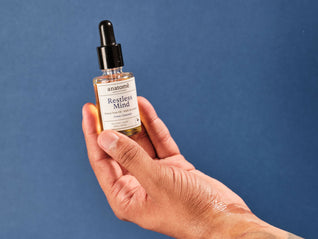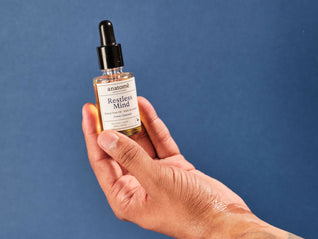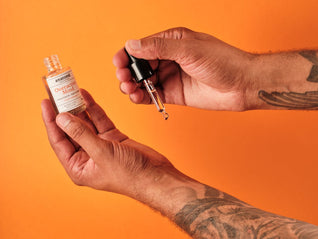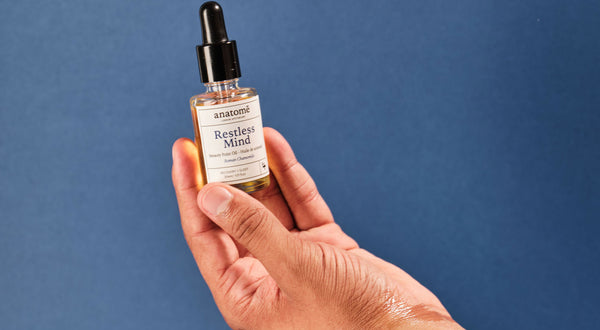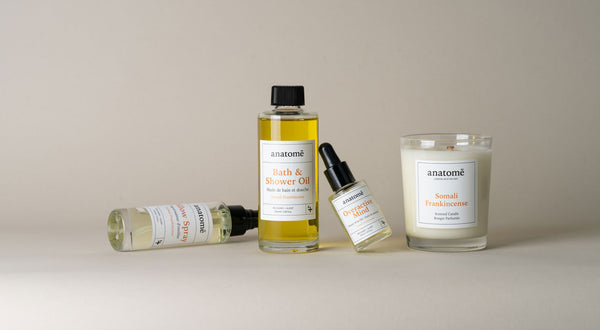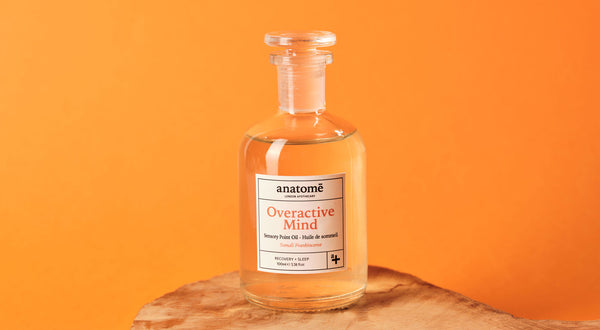A good night's sleep feels like a luxury in today's fast-paced world. People are often juggling endless to-do lists, navigating stress and dealing with a constant stream of digital information. However, the importance of quality sleep cannot be overstated.
The right amount of restorative sleep is critical for your physical health, mental wellbeing and overall productivity. So, what can you do to improve your sleep quality? How can incorporating anatomē’s aromachology formulations and sleep oils into your daily routine help? Let's explore some science-backed tips.
1. Create a Consistent Sleep Schedule
Your body has an internal clock that regulates your sleep-wake cycle. Try to go to bed and wake up at the same time every day, even on the weekends. This consistency can help regulate your body's internal clock and when combined with anatomē’s sleep oils, it can improve the overall quality of your sleep.
2. Optimise Your Sleep Environment
Your bedroom should be your sleep sanctuary. Keep it cool, dark and quiet. Invest in a comfortable mattress and pillows and ensure you have good ventilation. Consider using anatomē’s aromachology formulations that are designed to create a calming atmosphere, such as candles, pillow sprays and sleep oils. The soothing scents of lavender and chamomile, amongst others, can promote relaxation and improve sleep when used consistently.
3. Limit Exposure to Screens
The blue light emitted by mobile phones, tablets and computers can interfere with your sleep by suppressing the production of the sleep hormone melatonin. Try to avoid screens at least an hour before bedtime and participate in calming activities like reading instead of scrolling on your phone. Alternatively, consider using blue light filters.
4. Improve Your Diet
Avoiding large meals, caffeine and alcohol before bedtime. These can significantly disrupt your sleep patterns by causing discomfort or altering sleep architecture. Your pre-sleep nutrition may lead to frequent awakenings or difficulty falling asleep in the first place. Instead, opt for a light, balanced snack if needed, perhaps something rich in complex carbohydrates and protein, to satiate hunger without upsetting your digestive system.
5. Regular Exercise
Physical activity is known to improve sleep. However, try to finish your workout a few hours before bedtime to give your body time to wind down. An evening yoga session could be a perfect choice to help you relax before getting into bed, enhanced by the calming scents of anatomē’s aromachology formulations.
6. Mindfulness and Relaxation Techniques
Practices such as meditation, deep breathing or progressive muscle relaxation can help calm your mind and prepare your body for a good night’s sleep. Incorporating anatomē’s sleep oils with soothing scents like frankincense into your mindfulness techniques can enhance relaxation and increase the likelihood of restorative sleep.
7. Limit Naps
While power naps throughout the day can be rejuvenating, long or irregular naps can have a negative impact on your nighttime sleep. If you need a nap during the day, try to keep it short, around 20-30 minutes. Ideally, nap early in the day rather than only a few hours before you would typically go to bed as well.
8. Manage Stress
High stress levels are a significant contributor to sleep problems. Consider trying anatomē’s aromachology formulations that are designed to alleviate stress and anxiety by regulating cortisol levels in your body. You can also incorporate breathing exercises and mindfulness practices into your evening routine. For long-lasting improved sleep, assess your work and personal life to address anything that could be contributing to your stress.
9. Get Exposure to Natural Light
Exposure to natural light plays a pivotal role in regulating your body's internal clock, which directly affects your sleep-wake cycle. Spending time outdoors, particularly in the morning, can help to enhance your sleep quality. The sunlight naturally boosts the production of serotonin, a hormone that not only elevates mood but also prepares the body for a restful night's sleep.
10. Seek Professional Help
If you've tried these tips and are still struggling with sleep, don't hesitate to consult a healthcare professional for some guidance. Sleep disorders are treatable conditions and seeking help is a proactive step towards better sleep. A healthcare professional can offer you targeted, evidence-based solutions tailored to your specific needs.
Improving Your Sleep Quality
Ultimately, improving sleep quality is essential for your overall wellbeing. By following these science-backed tips and incorporating anatomē’s aromachology formulations into your routine, you can create the perfect environment for a good night's sleep. Remember, it may take some time to see significant changes, so be patient and persistent to achieve restful sleep.
You can find out more about the natural sleep products we have created at anatomē on our website. We understand how critical sleep is to overall health and wellbeing, and we have a range of tried and tested aromachology oil blends that can help you achieve truly restorative sleep night after night.
